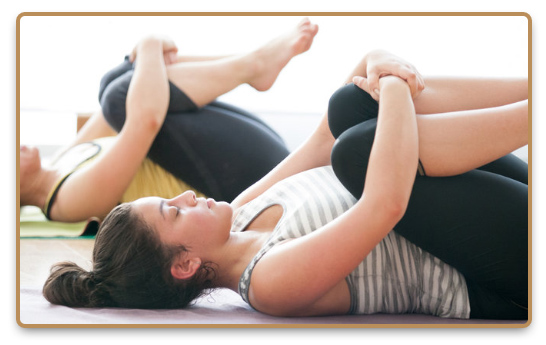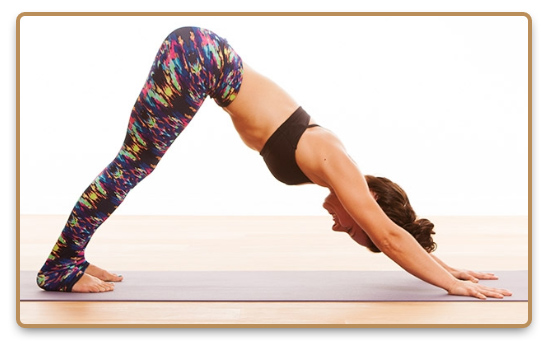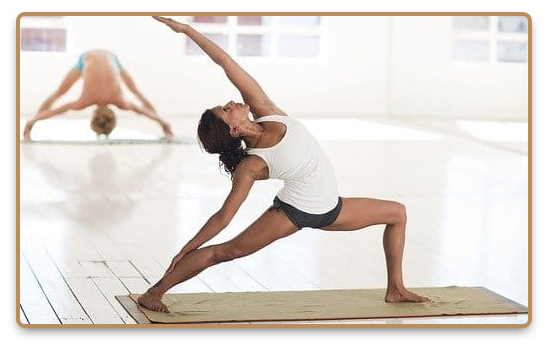
03 Feb Pranava Yoga: The Power of Om to Become One With Brahman
What Is Pranava Yoga?
Pranava yoga is a meditation practice focused on the mantra of Om (or Aum). In some circles, Pranava yoga is known as Aum yoga. “Pranava” translates to “humming” and is meant to represent “the Absolute.” A mantra is a repeated sound, word, syllable, or phrase that is believed to have mystical powers.
These mantras can be repeated either aloud or internally. Om is called a “bija”, or seed, mantra, which are typically one syllable, making them very easy to learn, but also powerful. The seed term is apt, as many mantras are built up from this initial syllable.
When one attempts to harmonize the focus on the mantra “Om” with breath control, it is believed to help unify the mind, body, and spirit. The ultimate goal is to become one with Brahman, the ultimate reality, through liberation from suffering and attachment, in order to more easily overcome life’s various challenges.
Pranava Yoga and the Three Parts of the Brahman
Om may be the most important mantra in both the Hindu and Buddhist traditions, but is a part of other religious disciplines as well. Some have suggested that the three components, A,U, M are a representation of the three parts of the Brahman: creator, destroyer, and preserver respectively. It has been called “the seed of the universe”, or the sound at the beginning of time, and it is also called “the soundless sound”.
Some believe that it encompasses the entire universe in a sound. Om is mentioned in many of the seminal Hindu texts including the Yoga Sutras of Patanjali, the Upanishads, and the Bhagavad Gita. It has been said to have a direct connection to the ajna, or third eye chakra. Very often, this mantra is used three times to open and close yoga classes, even those not focused on Pranava yoga. It is used to draw the practitioner into the mindset of the meditation or yoga practice.
Om meditation is recommended in texts such as the Mandukya Upanishad and the Taittiriya Upanishad as a way to achieve self-realization and establish a connection with Brahman. The Mundaka Upanishad, for example, equates Brahman with the target, Om with the bow, and the individual self with the arrow.
Krishna identifies with Om and emphasizes the crucial importance of Om in achieving oneness with the Divine through continuous meditation and remembrance.
In yoga, Om represents the idea of Ishwara, or God. Repeated repetition and focus on Om is recommended to overcome mental blocks and distractions (such as sickness, doubt, laziness, and worldly attachments) and to achieve spiritual clarity and tranquility.
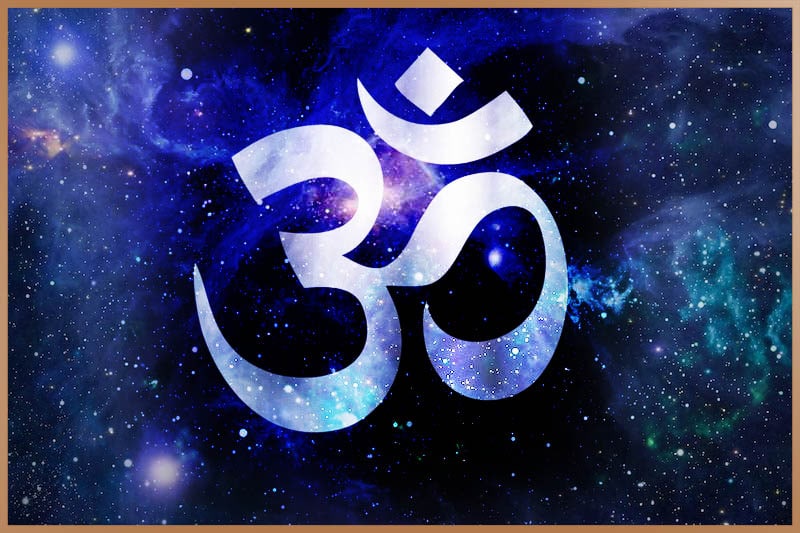
What Does the Practice of Pranava Yoga Look Like?
Om as The Mantra of Pranava Yoga
Despite its short length, om consists of three different syllables, that can be heard when stretched out. The initial sound is very similar to the diphthong “ou” in the English word “house”, but when pronouncing it, one is meant to separate it into the two vowel sounds. It should begin from the back of the throat, then move forward, so it almost feels as if it’s covering the face. It has been described as a mask. You finish the word with the “mm” sound from a closed mouth. The vowel sounds are usually pronounced for twice as long as the finishing consonant.
In some sources, there is a final “ng” sound at the end. Then you observe a short moment of silence before inhaling again.
See How to Practice Pranava Yoga with a simple device.
Many times, the chanting of om is done as a group with the mantra growing strength by collective pronouncing of the sound. This can make the vibrations ever stronger. However, many practice Pranava yoga alone.
It is very important not to let the mantra lose its power. Over time, many people just repeat mantra in a form of rote repetition, losing the focus of the practice. Also, it is not necessarily the sound alone that has power.
Sometimes people can find benefit from chanting without sound. Others have mentioned that focusing on the visual symbol for om is effective as well. Whatever method one chooses, practitioners of Pranava yoga are encouraged to meditate upon the meaning of the syllables.
It is suggested to break the sound down into four parts, each corresponding to a different level of consciousness, and focus on that. The initial “ah” sound represents our conscious state or the place where we connect with the waking world. The “u” sound encompasses our inner-self including dreams, thoughts, and memories. The “m” is another level deeper into the place of deep sleep or the unconscious.
By thinking about all three levels, we are brought to their union, the place where the sound ends, representing our transcendence to a place of tranquillity and bliss.
What Are the Benefits and Risks of Pranava Yoga?
Benefits of Chanting Mantras and Pranava Yoga
1. Feeling of Togetherness
There have been studies that suggest that chanting in general may have some benefits. For example, one study in 2009 found that it could increase blood flow to the brain. Anecdotally, some claim that chanting, especially in groups can be an ecstatic feeling, giving the practitioners a general feeling of well-being. Some have described that it creates a feeling of togetherness with a group.
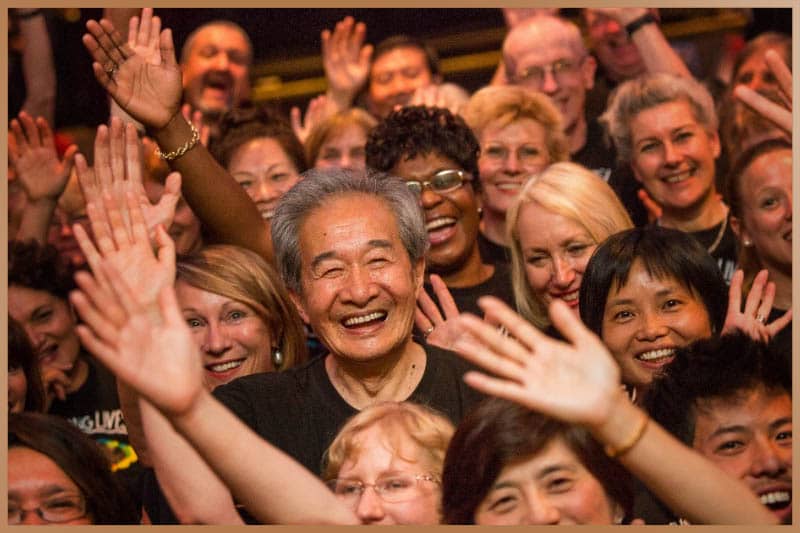
2. Relaxation
Om chanting is very common in meditation practices. A 2011 study looking at functional Magnetic Resonance Imaging (fMRI) of patients while chanting om, showed stimulation in areas related to relaxation. A 2018 study found similar effects. Though it doesn’t prove that the chanting causes relaxation, it does warrant further exploration.
Anecdotally, many people seem to find something relaxing about chanting om during meditation. One study showed that meditation upon om may lower the heart rate more than simply non-targeted thinking during meditation. Given the negative effects that stress may have on the body, if Pranava yoga does help make one’s meditation practice more fruitful and relaxing, it can be seen as beneficial. Some studies have suggested that meditation in general can lower one’s blood pressure.
Start practicing today
The Egely Wheel is trusted by thousands of people who practice yoga, telekinesis, meditation and healing. This device is the best solution for measuring your energy flow and efficiency of healing, and you get instant feedback.
3. Depression
Some believe the general idea that mantras, especially om give off powerful vibrations, which have a special effect on the glands and vital organs within the abdominal cavity. These vibrations can also help one breathe deeper and “tone” the nervous system. Although this may sound like pseudoscience, some scientists have begun looking into these claims to see if they hold water. The aforementioned 2011 study found a deactivation of various brain structures and parts of the limbic system. Though further study would be needed, it may suggest that this type of chanting may be used in the treatment of depression or epilepsy.
Are There Any Risks Associated with Pranava Yoga?
Sometimes chanting om can make some people insecure, especially in front of others. Given that peace of mind and relaxation are among the goals of meditation, this could make it difficult for some to get the full benefit of Pranava yoga. It’s a stretch to call this a “risk”. Some yoga teachers get around this by doing chanting as a call and response with their students.
14 Sources +
Egely Wheel has strict sourcing guidelines and relies on peer-reviewed studies, academic research institutions, and medical associations. We avoid using tertiary references.
- Neurohemodynamic correlates of ‘OM’ chanting: A pilot functional magnetic resonance imaging study – https://www.researchgate.net/
- Meditation on OM: Relevance from ancient texts and contemporary science – https://doi.org/
- Om – https://en.wikipedia.org/
- Pranava yoga – https://en.wikipedia.org/
- The 5 Pillars of Jivamukti Yoga – http://www.jivamuktiyoga.se/
- The Complete Yoga Book: The Yoga of Breathing, Posture and Meditation – https://www.amazon.co.uk/
- How Stress Affects the Immune System – https://www.psychologytoday.com/
- Directional brain networks underlying OM chanting – https://www.sciencedirect.com/
- Om and Its Use in Yoga – https://www.verywellfit.com/
- A Beginner’s Guide to Meditation – https://www.yogajournal.com/
- To Om or Not to Om? – https://www.yogajournal.com/
- Mastering the Om: A Guide for Beginners – https://www.yogajournal.com/
- The Sound of Om – https://www.yogajournal.com/
- Pranava Yoga:The Sacred Practice of Aum Meditation – https://hindutempletalk.org/
Updated: July 29, 2024. – This article was originally published on February 3, 2021.
Discover more types of Yoga
-
Zen Yoga: A Fusion of Yoga and Japanese Zen Philosophy
Zen yoga is a holistic yoga practice that blends together hatha yoga with an increased focus on Buddhist philosophies. Learn more...
-
Yin Yoga: Its Effectiveness in a Fast-paced Life
Yin yoga is a type of hatha yoga mixed with daoist philosophy that focuses on the holding of asanas for longer periods of time without props. Learn more...
-
Vinyasa Yoga: Focus on the Flow of Movement
Vinyasa yoga is a term used to describe a variety of yoga styles that utilize continuous movement instead of holding positions for long periods. Learn more...


